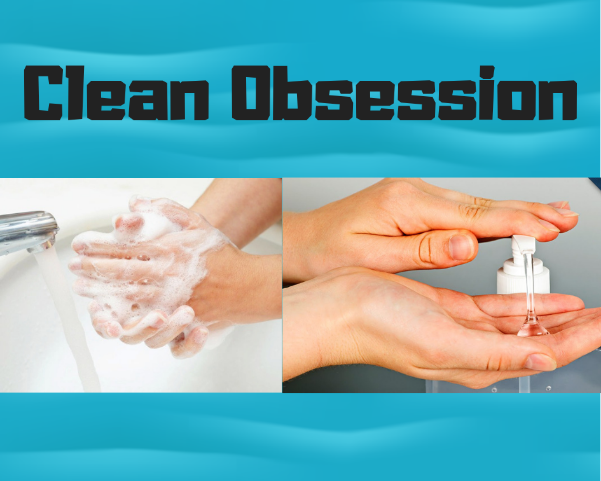
Before hand sanitizers became popular in the 1990s, we washed our hands with soap and water to remove dirt and germs. Now, the quick and easy way to banish germs is to use hand sanitizers. As we have learned more about the good and bad microbes, the more obsessed we have become with them. The good germs keep our skin and body healthy by communicating with our immune system to keep it balanced and protect us from pathogenic or infection-causing microbes. The bad germs can infect us with undesirable diseases. The question is -- what is the healthy balance? New studies have shown that washing with soap and water is more effective at removing germs and shows that some of the ingredients in these sanitizing gels are unhealthy.
How Do Hand Sanitizers Work?
Hand sanitizers were originally developed for use by medical professionals to help the spread of bacteria and viruses. Researchers in the mid-1990s discovered that alcohol in a gel form provided a quick and easy way to kill germs when there wasn’t time for soap and warm water. According to the Centers for Disease Control, in order for the sanitizer to be effective it must contain at least 60% alcohol, be rubbed over the surfaces of both hands and then completely evaporate without wiping it off.
Are Hand Sanitizers Useful?
The portability of hand sanitizers especially during peak virus season makes it easier to clean your hands when you are in a place where washing your hands isn’t possible like when your child just sneezed in a car. So there is a time and place for them if they have safe ingredients and are used correctly.
What’s Wrong with Hand Sanitizers?
Regular use of alcohol based hand sanitizers over time can cause these problems:
- They just don’t work as well - The FDA states that there is no evidence that antibacterial soaps (and sanitizers) are any more effective than regular soap and warm water in helping to prevent the spread of germs.
- Kills the “good” bacteria – Washing hands does a better job of preserving the flora, or "good" bacteria, on your hands. Your whole body is covered with bacteria, and if you remove the good bacteria, they can be replaced by other, potentially harmful, bacteria.
- Dry skin – The alcohols used in hand sanitizers are drying alcohols that can irritate the skin by stripping away the skin’s natural oils and acid mantle as well as the good bacteria that helps to make skin healthy.
- Accelerated skin aging and damage to skin cells - Alcohol can disrupt the skin’s natural barrier function and lead to increased dehydration, fine lines and wrinkles, dermatitis, cracks and flakiness.
- Antibiotic resistance – The overuse of antibiotics has led to the rise of superbugs – bacteria and viruses that resist antibiotics. The obsessive use of hand sanitizers and other antibacterial products has led to bacteria becoming resistant to those products.
- Harmful chemicals – Besides alcohol, some hand sanitizers contain additional chemicals.
- Triclosan - Even though triclosan was banned in the use of antibacterial soaps in 2017, it was not banned in hand sanitizers. According to the FDA, "Animal studies have shown that triclosan alters hormone regulation. Other studies have raised the possibility that triclosan contributes to making bacteria resistant to antibiotics." Triclosan is also lipophilic, which means it can bioaccumulate in your fat for long periods of time. As reported by Scientific American, triclosan is now detectable in human breast milk, blood, and urine samples. Research published in the Environmental Health Perspectives journal linked sanitizers to development of allergies in young children possibly because the impact of the triclosan on the endocrine systems of young children. The endocrine system is connected to immune function, leaving children susceptible to seasonal allergies.
- Fragrances – Chemical fragrances are found in many hand sanitizers but manufacturers are not required to list the ingredients of these fragrances so you don’t know what chemicals you are being exposed to.
- Phthalates and parabens – These chemicals are also found in some hand sanitizers and disrupt normal endocrine system function.
- Weakened immune system - We think we are reducing our risk of getting sick when we use hand sanitizers, but they can actually weaken the immune system. Studies have shown that ultra-clean environments—particularly early in life—can contribute to reduced immune defenses later on.
What is the alternative?
- Thoroughly wash hands with soap and warm water for 20 seconds and dry with a towel or air dry.
- Use the Environmental Working Group website and app to look up the products you are buying and using and make sure they are safe.
- Make your own sanitizer using safer ingredients including essential oils that have antimicrobial properties.
- Try my new product “Germs Away” in Holistic Gigi’s Apothecary Etsy Shop.
